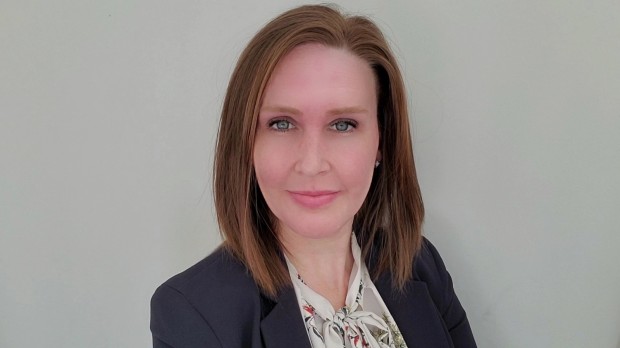Photo : Katelyn Berry
Michelin VP of Marketing, B2C North America, Katelyn Berry, has recently graduated from the Diversity Leaders Initiative class at the Riley Institute. The program equips leaders with the necessary tools and perspectives to leverage diversity to improve organizational outcomes and drive social and economic progress in South Carolina.
What is The Diversity Leaders Initiative Class?
Established leaders from all sectors are carefully selected and invited to apply for the DLI program, which offers a unique, highly-interactive curriculum aimed at imparting deep knowledge and skills to effectively manage and lead increasingly diverse workers, clients, and constituents.
After being nominated by a Riley Fellow, applicants (such as Katelyn Berry) go through a rigorous application and interview process. Participants are chosen to join the class based on their capacity to create an impact within their organizations and communities, and each class is crafted to reflect South Carolina's diverse demographics.
Since 2003, more than 2,400 leaders, including Katelyn Berry, across South Carolina have graduated from the program and become Riley Fellows - a powerful group made up of corporate CEOs, legislators, and non-profit and community leaders.
The program's curriculum brings participants together once a month for five months. The curriculum is highly interactive and includes case studies, scenarios analyses, and other experiential learning tools to maximize interaction and discussion while facilitating productive relationships.
The curriculum includes:
-
Defining diversity
-
Complexity of diversity
-
Diversity and the law: bias vs. discrimination
-
and more
Throughout the program, participants partner with area non-profit organizations to respond to challenges and opportunities in their communities.
Some of the projects DLI classes have participated in to facilitate a vibrant and diverse economy in South Carolina include:
-
Camp Hope: The summer evening camp for underserved children in Charleston combines education with personal and social responsibility, cultural awareness, and health and wellness. Camp Hope provides a safe and positive environment where children are exposed to a broad spectrum of options they might not otherwise have known about. Camp Hope was a Spring 2007 Lowcountry DLI class's community action project.
-
Friday Night Lights: Building on Camp Hope's success, Friday Night Lights, another summer program, launched in 2013. The program, a joint venture between Charleston Police, Fire, and the recreation department, works to foster relationships and trust by providing kids in lower-income areas of Charleston to come out and meet police officers and firefighters and understand they're there to help them. Friday Night Lights gives kids a safe and fun place to go on Friday nights in the summer and take part in a variety of fun, educational, and character-building activities, including flag football, basketball, swimming, music, dance, arts, and crafts, and movies.
-
Dream Connectors: Dream Connectors was created to open the minds of local seventh-grade students to empower them to create a dream for themselves and help connect their dreams with their education and future career goals. The program exposes seventh-graders from Lakeview Middle School and Hughes Academy of Science and Technology to diverse career opportunities with Michelin, BMW, and Greenville Health System. The program helps students make the connection between what they're learning in school and their future career, motivating them to perform better and engage more in class.
The Importance of Diversity in 2022 and Beyond
Diversity in the workplace has never been more important. A recent McKinsey study found that the GDP could increase 26% by equally diversifying the workforce. What's more, companies that are gender-diverse are 15% more likely to see higher financial returns.
Organizations looking to create authentic, resilient, and assuring work environments are prioritizing leadership diversity because of its ability to:
-
Enable representation: When people of different races, ethnicities, sexual orientations, abilities, etc., are represented at the top, it sets the tone, ensures representation, and instills confidence in the staff and organization as a whole.
-
Bring new perspectives: A diverse workforce also includes people of different abilities, backgrounds, and work and education experience and levels to bring as many different perspectives and approaches to problem-solving as possible.
-
Improve employee satisfaction: A report found that 61% of employees believe diversity and inclusion strategies are important and make them more engaged. When employees have diverse leaders to look up to, they have a stronger sense of belonging. They can better visualize themselves advancing to senior leadership roles, motivating them to network more and invest in their careers.
-
Connect better with customers: In order to connect with customers, you must be able to truly understand their pain points and desires. More than ever, today's consumers care about social justice and equity and want the companies they choose to do business with to do the same. This is why it's critically important for organizations to bring diverse leadership to the forefront to boost customer confidence in their brand and show up authentically.
Katelyn Berry is thrilled to have graduated from the Diversity Leaders Initiative Class and looks forward to putting what she learned into action at Michelin.









